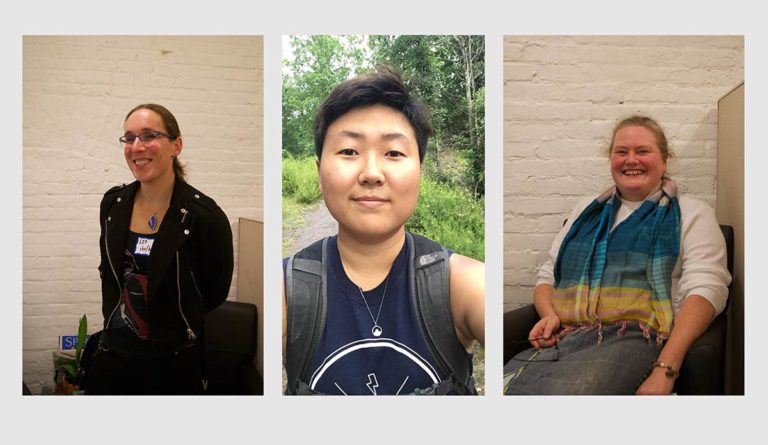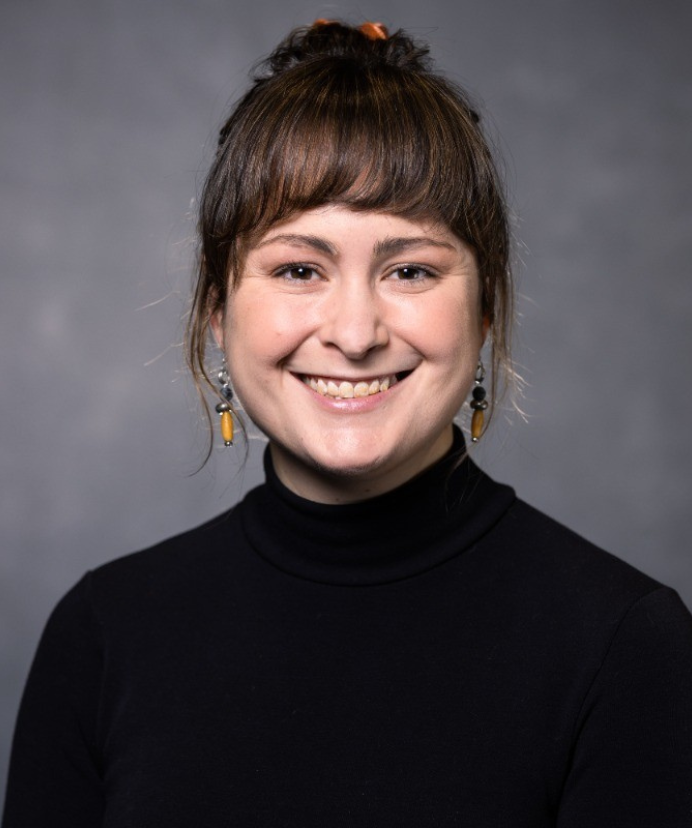Three Voices on 3
What do the potential outcomes of today's vote on MA Question 3 look like for Yes on 3 coalition members Alexis Krohn, Eurah Ko, and Linda Fingerson?

Read Time: 5 minutes
Published:
Massachusetts residents will be voting today on ballot questions about patients-per-nurse limits, election spending, and transgender nondiscrimination protections. Question 3 asks: “Do you approve of a law summarized below, which was approved by the House of Representatives and the Senate on July 7, 2016?” The law referenced is An Act Relative to Transgender Anti-Discrimination, which serves to protect the civil rights of over 32,000 transgender residents in the state of Massachusetts. A “Yes” vote on today’s ballot would keep the current law in place.
What do the potential outcomes of Yes on 3 look like for coalition members who are invested in the campaign? PHP sat down with (left to right in photo) Alexis Krohn (she/her pronouns), Trainer and Coach with Yes on 3 Coalition; Eurah Ko (she/her pronouns), Volunteer and Coach with Yes on 3 Coalition; and Linda Fingerson (she/her, they/them pronouns), Volunteer and Leader with Yes on 3 Coalition.
Alexis Krohn (she/her): Trainer and Coach
Why is Yes on 3 important to you?
The biggest thing is that we are assuring the inherent dignity and respect of all transgender people within the Commonwealth. It is not just about having access to public accommodations, but the message that sends to transgender people: that they are a valued part of our society. And that also goes not just for me, because I am transgender, but also for folks who are even more vulnerable than I am. Especially for children, like my former students, where having that affirmation of value from the state is a huge piece of assuring their dignity. And the Yes on 3 campaign has an opportunity not just to assure the dignity of everyone in the Commonwealth, but also to send a message to the rest of the country about how we value our citizens in Massachusetts.
What would a No on 3 outcome mean to you?
It would be distressing, mostly because of the message it sends. Ultimately this bill is about whether or not trans people are allowed, basically, in public life. A no vote would prevent my students, who are more vulnerable, from moving through the world as well and as easily, while also sending a message to them that they are not valued members of our community. And the toll that takes on the psyche, as I know myself from being a transgender teen who was in the closet… I don’t want any of my students to have to go through that themselves. A No would indicate that a large slew of Massachusetts do not consider transgender people an important segment of the community.
Eurah Ko (she/her): Volunteer and Coach
What does Yes on 3 mean to you?
It has been really heartening and electrifying to see this many passionate volunteers. And from talking with voters, I have found a lot of people that I don’t expect to be supportive. Like retired Navy veterans, laughing at the bathroom concern, who say: “Oh I definitely support this, why wouldn’t you?” I know there are people out there who don’t want this, but to know that there are people who actually exist outside of whatever queer-bubble I’m living in is amazing. To know that there’s this base level of support around the state really matters to me as someone who lives here.
What would a No on 3 outcome mean to you?
It would signal that even the so-called ‘liberal haven’ of Massachusetts truly isn’t safe for queer people, trans people, etc. It would mean that all the trans people I know would be walking about Massachusetts, paranoid and worried about where they’ll get rejected next. Whether it’s a job, or a bathroom, or a hospital. Discrimination still happens, even with this law in place. And without that base level protection of the law, it’s only going to get worse.
Linda Fingerson (she/her/they/them): Volunteer and Leader
Why is Yes on 3 important to you?
Well, for a number of reasons; I’m a queer person, I’ve identified as bisexual my entire life, ever since the fifth grade. I have a parent who is gay and it’s influenced my life in certain ways. They are in the teaching profession, and I really feel like a lot of the choices they made throughout their life were to keep the profession safe. Being gay in the 70s and trying to teach was a difficult thing to do. My very strong feeling is that the messaging from the opposition that has come down from those times continues as a sort of bad apple that spoils the barrel. And since it’s affected my particular family’s fortunes, I feel like I want this messaging gone. I feel like I want it out, just out of the public discourse, and I want people to grow up around the whole bathroom thing.
What would a No on 3 outcome mean to you?
Of course, I would be upset. One of my personal goals was to create a safe space in my particular area of the suburbs for queer folks. But I don’t feel it’s all that safe now. The closest queer community effort that I’m aware of is in Framingham. For the non-binary and trans folks, it seems the impulse [has always been] to get out of Dodge; that suggestion has been made to me by people who care about me from time to time. And my answer to them is that I would rather create something here if I am able to. A loss [on 3] would set that back for me, personally, but it wouldn’t stop me.
These conversations were lightly edited for length and clarity.
Photos of Alexis Krohn and Linda Fingerson by Erin Polka.



